The 75 Best Psychological Thrillers of All Time, From 'Gone Girl' to 'The Lost Daughter'
The 12 Best Thriller Movies of All Time
In the world of film, the Thriller is a very broad category. As you'll see with our compiled "12 Best" list, it ranges 80 years and dips its toe in many other genres - horror, film noir, espionage, etc. We've done our best here to give you a grand sampling of suspenseful movies, a rundown that spans multiple decades, evokes different moods, and showcases many directors (though there are a few repeats). So here are the best thriller movies of all time, from grim, grinning ghosts, to serial killers, to brainwashed pawns of enemy nations.
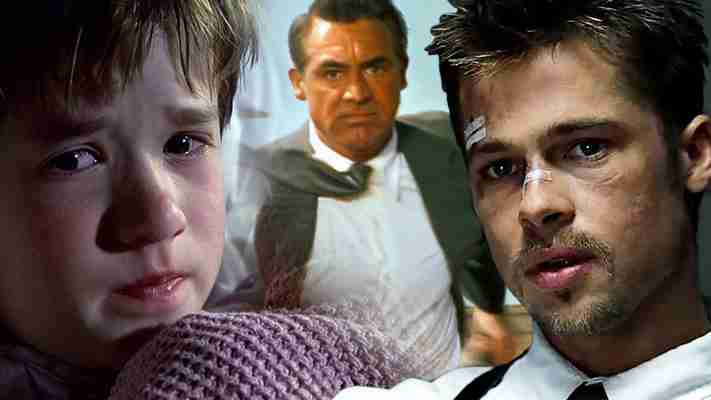
The Top 12 Best Thrillers 13 Images
12. The Manchurian Candidate (1962)
The Manchurian Candidate
Where to Watch: Roku Channel (w/ ads), Tubi (w/ ads), Pluto TV (w/ ads), or rentable on most platforms. Director: John Frankenheimer
Firstly, Jonathan Demme's remake of The Manchurian Candidate, from 2004, starring Denzel Washington, is also very good. A different movie in many ways, but still good. Nothing beats the original in this case, however, as John Frankenheimer's 1962 adaptation of Manchurian Candidate combines drama, suspense, science-fiction and political satire in such an effective way it's hard to put it in any one category. Starring Frank Sinatra, Laurence Harvey, and Angela Lansbury, The Manchurian Candidate follows a returning hero soldier who's suspected of being a brainwashed assassin.
11. Memento (2000)
Memento
Where to Watch: HBO, HBO Max, Hoopla, or rentable on most platforms. Director: Christopher Nolan
Guy Pearce, Joe Pantoliano, and Carrie-Anne Moss star in this inventive, backwards 2001 thriller from writer-director Christoper Nolan, which tells the story of a vengeful man who suffers from short-term memory loss. Memento unfolds in ten-minute sequences, shown in reverse chronological order, creating an experience that put Nolan on everyone's short-list, and turned Memento into one of the privileged few movies that become lexicon.
You may also like: All Christopher Nolan Movies ranked
10. The Talented Mr Ripley (1999)
The Talented Mr Ripley
Where to Watch: Peacock, or rentable on most platforms. Director: Anthony Minghella
Anthony Minghella's 1999 adaptation of the first of Patricia Highsmith's five Tom Ripley novels is a magnificently twisted and unsettling yarn. It's about a young sociopath (Matt Damon) with dreams of high society, who becomes dangerously obsessed with a rich college dropout (Jude Law) living in Italy. The Talented Mr. Ripley is a fascinating thriller that takes us inside the mind of a monster who hides in plain sight, kills with kindness, and will do anything to cover his tracks.
9. The Sixth Sense (1999)
The Sixth Sense
Where to Watch: Amazon Prime Video, or rentable on most platforms. Director: M. Night Shyamalan
Even though everyone knows the big twist in The Sixth Sense now, M. Night Shyamalan's breakthrough 1999 movie, starring Bruce Willis and Toni Collette, is still a movie that stands firm even without the shock and awe of its final moments. Haley Joel Osment's journey as young Cole, a tortured boy desperate to find out why the dead appear to him, is masterful storytelling, containing a meaningful message about embracing that which terrifies you to discover the truth underneath.
8. The Conversation (1974)
The Conversation
Where to Watch: Amazon Prime Video, or rentable on most platforms. Director: Francis Ford Coppola
Between The Godfather and The Godfather Part II Francis Ford Coppola made The Conversation, a paranoid masterpiece on par with his best work. It stands up today as a remarkable depiction of one man's professional life destroyed by his inescapable personal convictions. Gene Hackman gives a landmark performance as Harry Caul, a sad-sack surveillance expert who finds himself ensconced in a potential assassination plot while trying to recover from his role in the deaths of three people years before.
7. Zodiac (2007)
Zodiac
Where to Watch: Hoopla, or rentable on Amazon or most other platforms. Director: David Fincher
David Fincher's Zodiac, about the manhunt for the Zodiac Killer in the late 1960s, is a moody masterwork overflowing with gut-wrenching anxiety. Jake Gyllenhaal, Mark Ruffalo, and Robert Downey Jr. star in this cold-blooded crime epic born from decades of bewildering facts and suspicions built up around the case. You'll never hear Donovan's "Hurdy Gurdy Man" the same way again.
6. Double Indemnity (1944)
Double Indemnity
Where to Watch: The Criterion Channel, or rentable on Amazon or most other platforms. Director: Billy Wilder
Billy Wilder's legacy is that of being one of the most versatile and talented directors in Hollywood's history. If you only know Fred MacMurray as the lovable dad on My Three Sons, you'll look at him differently after seeing his performance as Walter Neff in Double Indemnity, a riveting, pivotal noir about an insurance salesman and a seductive housewife (Barbara Stanwyck) who pair up to bump off her husband. It's bleak, cynical, and filled with dark humor that's as troubling as it is inviting.
5. Se7en (1995)
Se7en
Where to Watch: HBO Max, or rentable on most platforms. Director: David Fincher
David Fincher's Seven (also "Se7en") brought ghoulish intelligence and jagged thrills to the oversaturated '90s serial killer movie game. A gorgeously dark suspense film, which unwraps the gory tale of a maniac punishing his victims by exacting brutality based on the Seven Deadly Sins, Seven features Brad Pitt and Morgan Freeman as an uneasy detective duo on the cusp of having their worlds shattered forever.
4. Chinatown (1974)
Chinatown
Where to Watch: HBO, HBO Max, Cinemax Go, Hoopla, or rentable on most platforms. Director: Roman Polanski
Featuring a strong, Academy Award-winning screenplay by Robert Towne, Chinatown is an awesome, textbook neo-noir thriller that simultaneously pays homage to and redefines the film noir genre. It follows private detective J.J. Gittes (Jack Nicholson) as he investigates a murder and stumbles onto a conspiracy involving the future of Los Angeles. Telling a complex story brilliantly and showcasing brilliant performances by Nicholson and co-star Faye Dunaway, Chinatown has been on every best thriller/noir shortlist since its 1974 premiere.
3. Psycho (1960)
Psycho
Where to Watch: Tubi (w/ ads), or rentable on most platforms. Director: Alfred Hitchcock
Simply put, Psycho is one of the best and most influential suspense thrillers ever made and one of the best horror movies. This 1960 Alfred Hitchcock classic starring Anthony Perkins and Janet Leigh changed cinema and inspired countless future filmmakers in the process. For Hitchcock — who had previously crafted films like North by Northwest, Vertigo and Rear Window — the film was a notable departure from his established formula. Filmed with a smaller budget, in black-and-white, by the crew of his television series Alfred Hitchcock Presents, Psycho was controversial (at the time) in both structure and topic and now stands tall as one of the best movies of all time.
2. The Silence of the Lambs (1991)
The Silence of the Lambs
Where to Watch: Fubo, or rentable on Amazon and most other platforms. Director: Jonathan Demme
Remember when a horror movie won the Oscar for Best Picture, Director, Actor, Actress and Screenplay? The Silence of the Lambs not only launched a Hannibal Lecter media franchise and ushered in a brief era of "prestige horror" — big name directors doing spooky stuff Misery, Interview with a Vampire, Bram Stoker's Dracula, etc) — but it also led to dozens of copycat serial killer films throughout the '90s (one even being called Copycat). Oh, and did we mention it also happens to be a phenomenal movie with some of the best twists, turns, and scares of all time? The Silence of the Lambs is near-unbeatable.
1. North By Northwest (1959)
North By Northwest
Where to Watch: HBO Max, or rentable on most platforms. Director: Alfred Hitchcock
Truthfully, this list could be mostly Alfred Hitchcock films. Therefore it’s fitting that he should nab the top spot here with his epic mystery/thriller, North By Northwest. An espionage adventure brimming over with intrigue and fun, and featuring some of the most copied sequences in film, North By Northwest stars the incomparable Cary Grant as Roger Thornhill, a man mistaken for a spy and forced to flee from relentless pursuit, providing a blueprint by which all thrillers can be judged.
Matt Fowler is a freelance entertainment writer/critic, covering TV news, reviews, interviews and features on IGN for 13+ years.
The 47 Best Thriller Films Ever Made
Thrillers never, ever, ever go out of fashion. No matter what else is happening in cinema, audiences always want films that get their hearts racing.
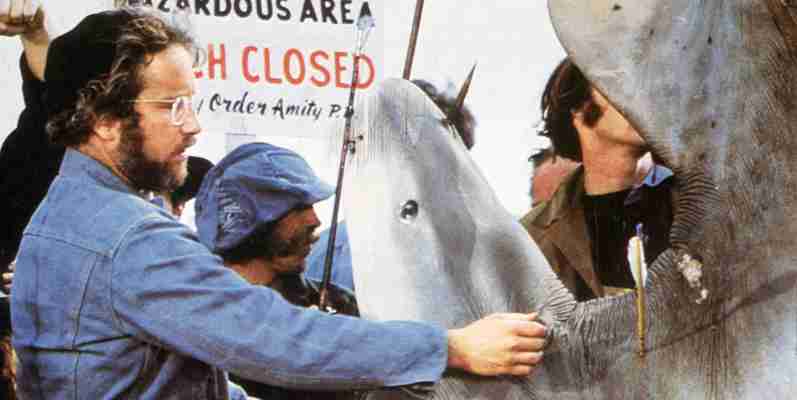
To be fair, we're never likely to get bored of chases, suspense and drama. But what's often forgotten is that thrillers are where a lot of the most innovative and distinctive writers and directors do their best stuff – after all, thrillers live or die by keeping audiences intrigued, so filmmakers are always exploring new ways to ratchet up the stress.
The best thrillers are all about that build-up and release of tension, which is, ultimately, the fundamental joy of cinema (and yes, some other activities too). With more than a century of thrillers to choose from, stretching back to pioneers like Harold Lloyd, you need a guide to the genre. You're very welcome.
Laura (1944)
This content is imported from YouTube. You may be able to find the same content in another format, or you may be able to find more information, at their web site.
If you like your film noir gnarly and gritty, try Laura. She's a young ad exec who, it's no spoiler to tell you, is murdered very early doors. Quite who wanted her dead is the central question, and one likely suspect appears in her rotten fiancé. Detective Mark McPherson, the man on the hunt for Laura's killer, finds himself falling into an obsession with both the case and its victim. Twist after twist follows, each one slightly less probable than the last. But the verve and style with which director Otto Preminger carries the story's turns raises Laura well above your average noir potboiler. A good one to have in your back pocket after everyone's gagging for something a bit like Glass Onion: A Knives Out Mystery this Christmas.
WATCH NOW
Battleship Potemkin (1925)
Universal History Archive Getty Images
Sergei Eisenstein's opus is one of the cornerstones of cinema, but for many years you couldn't see it in the UK. It was considered so inflammatory and socialist it was banned by the BBFC in 1926, and only granted an 'X' rating in 1954 after Stalin's death. Nina Agadzhanova's original screenplay was, to be fair, commissioned as a piece of propaganda to celebrate the 1905 uprising on said battleship which spilled out into wider Russian society. But in its 75 minutes the film started a revolution of its own within cinema and Eisenstein's quick, expressive editing and eye for montage still feel fresh. As it's out of copyright now you've got a few different versions available too, with different soundtracks – Pet Shop Boys' electronic score is a particularly good match for an appropriately future-shock feel. Watch Adam Curtis's TraumaZone as a companion piece, an affecting documentary-collage showing how it felt to watch first communism and then democracy collapse in Russia.
WATCH NOW
This content is imported from YouTube. You may be able to find the same content in another format, or you may be able to find more information, at their web site.
Les Diaboliques (1955)
If you've not seen Les Diaboliques, you've definitely seen all the films that nicked bits from it. It's got perhaps the first gigantic twist ending which totally rewrites what you think you've been watching, forcing you to see everyone and everything which happens afresh. The Wages of Fear director Henri-Georges Clouzot's film is fiendishly clever, and the rug-pull is no less shocking for knowing that it's coming. Michel is the cruel headmaster of a faintly rubbish boarding school in Hauts-de-Seine, and he's cheating on his wife with another teacher at the school (comment c'est très francais). Instead of hating each other, they hate Michel – and swear to do away with him. The brutality of the bathroom murder scene was one-upped by Alfred Hitchcock in Psycho five years later, and you definitely get the sense that Hitchcock's films hardened after the release of Les Diaboliques.
Silver Screen Collection Getty Images
Where Eagles Dare (1968)
If your main image of Where Eagles Dare is of Clint Eastwood gunning down hundreds of Nazis with a machine gun then yes, you'd be right in thinking that Where Eagles Dare is a very, very, very daft film with a honking script. Eastwood and Richard Burton are tasked with liberating an American general from captivity in a mountaintop schloss; in the heist to get him out, chaos ensues. Broadsword calling Danny Boy, etc.
But on the other hand, it's the connoisseur's choice of World War Two adventure flicks. this tale of derring-do up in the German Alps did shove the war movie on from the stern-browed likes of In Which We Serve that had dominated during and immediately after the war. How? Blood. Buckets of it. Like the New Hollywood upstarts around it like Bonnie and Clyde, Where Eagles Dare makes its killings extravagantly, almost preposterously painful. Watch Inglourious Basterds and tell me Quentin Tarantino isn't a huge fan.
For another thing, it looks absolutely gorgeous – shot on location in Bavaria and Austria, at an actual proper castle – and the growling Eastwood and the magnificently taciturn Burton make for the kind of grim, actually not that likeable or noble double-act which you believe could, probably, blast their way into the heart of Nazi-dom and get out again.
This content is imported from YouTube. You may be able to find the same content in another format, or you may be able to find more information, at their web site.
The Invitation (2015)
Will and Kira drive over to Will's ex-wife's house for a nice evening of chat, food, and sharp intakes of breath. More guests arrive, the door gets locked, fishy conversations and sneakily hidden barbiturates abound, and it turns out some of the party have joined a full-on cult. If you like your thrillers dark and intense with a side-order of unease at quite how weird dinner parties can get, The Invitation is for you. This teasing slow-burner is the work of Karyn Kasuma, who went on to direct the excellent Destroyer a few years ago.
-
Air Force One (1993)
Right, let's get it out of the way straight off the runway: yes, Donald Trump loves Air Force One. "My favourite was Harrison Ford on the plane," Trump told the New York Times. "I love Harrison Ford, and not just because he rents my properties. He stood up for America."
Yes, this is moronic. No, this does not mean we can't all love Air Force One. Yes, it's basically Die Hard but John McClane is the leader of the free world and Hans Gruber is Gary Oldman during the shrieky years. All that said, Air Force One is stonking. When Oldman's Soviet loyalist hijacks the president's plane, it's down to Ford's President James Marshall to one man army his way back to his family and make sure no renegade communists get to bounce home free as a bird. Ridiculous, stupid, excellent.
Face/Off (1997)
-
If you're ever at a loss for what to watch, watch Face/Off. It's never not a good time to watch Face/Off. Feeling sad? Face/Off will remind you that not everything is quite so terrible as you think it is. You could, after all, have your face stolen by techno-bandits led by your worst enemy. Feeling good? Face/Off will push you over the edge into pure joy. John Woo is rarely more John Woo than he is here, with gunplay and slow mo to burn, and Nic Cage has never been more gonzo. You know he improvised the whole bit where he just repeats the name of this film – "I want to take his face... off!" – for ages? The boy's a genius.
Dead Man's Shoes (2004)
This content is imported from YouTube. You may be able to find the same content in another format, or you may be able to find more information, at their web site.
Before This Is England turned him into the foremost chronicler of this country's subcultures, Shane Meadows' bloody revenge thriller delved into the mouldering underbelly of Matlock in Derbyshire. Former paratrooper Richard returns to his home town in the Peaks after a tour of duty, and sets about sorting out the drug dealers who've been making his younger brother's life a misery. Hunting them down one by one, Paddy Considine's Richard is a particularly British kind of one-man army, and the film's final act is as densely twist-packed as any M Night Shyamalan joint.
The Third Man (1949)
-
Though war in Europe had ended four years before Carol Reed's The Third Man came out, the spectre of conflict stalks this twisting, playful masterpiece of post-war British cinema. The rubble-strewn cityscape of Vienna through which western pulp novelist Holly Martins picks his way in search of old friend Harry Lime is split into British, American, French and Soviet zones. Profiteers and veterans damaged by the war haunt the city. And Harry Lime, who tempted Martins to Europe with a job offer, has suddenly died – but apparently nobody can be bothered to try and find out why. Martins tries to work out what happened to his friend, and discovers far more about him than he'd hoped. It's just so, so good.
Everything Everywhere All At Once (2022)
This content is imported from YouTube. You may be able to find the same content in another format, or you may be able to find more information, at their web site.
What begins as a kitchen-sink drama about an immigrant mum trying to pay her taxes suddenly ends up with a rip in the time-space continuum, propelling viewers through a rocket ship trip of parallel universes and ending with a philosophical dissection of not just who we are, but who we could have been. The Daniels directors – Daniel Kwan and Daniel Scheinert – weren’t kidding around with the title, and you barely get a chance to catch your breath in a hyperloop speed film that seems to switch direction and genre by the second. Think The Matrix meets Sliding Doors meets Eternal Sunshine of the Spotless Mind via a superhero movie, and you’ll still not have covered even a fiftieth of this wild film. Starring Michelle Yeoh in a career-best role, captivating newcomer Stephanie Hsu as the villain Jobu Topaki and with another iconic performance from Jamie Lee-Curtis, despite the bonkers nature of the (multiple) storylines, it still packs a hefty emotional punch, with twists and turns right through to the closing seconds. Just me crying over a scene of two rocks sitting next to each other? Bet I’m not the only one.
Jaws (1975)
This content is imported from YouTube. You may be able to find the same content in another format, or you may be able to find more information, at their web site.
The original blockbuster, and a turning point in cinema history. Before Jaws, a hit movie came out around Christmas and opened in a few cinemas before going bigger. After Jaws – and ever since – big movies opened in the summer, as wide as possible, and could make it bigger than anyone thought possible. Depending on who you listen to, the shark that terrorises the beaches of Amity Island stands for communism, or Watergate, or sexual liberation, or American disillusionment, or the knowledge of death itself, or terrorism, or a hundred other things. Or it might be a film about a shark that keeps eating people. The mechanical shark Steven Spielberg was hoping to shoot eating those people kept conking out, so by necessity he had to start shooting from the shark's point of view. "The film went from a Japanese Saturday matinee horror flick to more of a Hitchcock," he reflected later. It worked. In the first 38 days of release, Jaws sold 25 million tickets, and changed everything.
The Lighthouse (2019)
This content is imported from YouTube. You may be able to find the same content in another format, or you may be able to find more information, at their web site.
The absolute peak of Robert Pattinson's artsy middle period between the Twilight zone and the Bat-cave is this psychological horror-thriller from The Witch director Robert Eggers. Pattinson's rookie lighthouse keeper Ephraim Winslow washes up at the lighthouse of veteran 'wickie' Thomas Wake (Willem Dafoe) on the coast of 1890s New England. Wake puts Winslow through the mill, and it turns out that the last assistant wickie lost his mind. Slowly, the two men start to drive each other to madness as the weather and the walls close in. If you're into creeping dread, deep weirdness and spitting salty phrases like "Yer fond of me lobster ain't ye?" at friends and relatives, The Lighthouse is for you.
Blood Feud (1978)
This content is imported from YouTube. You may be able to find the same content in another format, or you may be able to find more information, at their web site.
Or, to give it its full title: Un fatto di sangue nel comune di Siculiana fra due uomini per causa di una vedova. Si sospettano moventi politici. Amore-Morte-Shimmy. Lugano belle. Tarantelle. Tarallucci e vino. Sophie Loren stars in Lina Wertmüller's pre-war love triangle set in Sicily, where the fascists have just come to power. Widower Titina (Loren), whose old husband has been murdered by the Mafia, can't make up her mind between a gritty attorney and a scumbag criminal. Naturally, it gets harder and harder to keep the two from finding out about each other.
WATCH NOW
Atlantics (2019)
-
Mati Diop's film is a lot of things at the same time. It's a ghost story about post-imperial West Africa, and a dewey-eyed love story about the power of the sea and a relationship which surges and rushes with the Atlantic's power, and a gritty social realist document of the migrant experience. It's also unbelievably beautiful to look at. In Dakar, Senegal, a futuristic new tower block is going up. A worker, Souleiman, who hasn't been paid in weeks, tries to escape to Spain and his love, Ada. She's betrothed to the wealthy Omar – but a tragedy strikes on their wedding day. Meanwhile Souleiman's disappeared. But not for long.
WATCH NOW
Crossfire (1947)
Getty Images
Two men beat a Jewish man to death, Captain Finlay (Robert Young) investigates and narrows the suspects down to a group of off-duty soldiers. Alarmed that his friend might be the prime suspect, Sergeant Keeley (Robert Mitchum) wades in. As the net closes around the real killers, things start to get even more ugly. This is a gritty look at antisemitism at a time when the world was still coming to terms with the Holocaust, and a stark reminder that that atrocity didn't start with people being marched into camps – it started with the indifference of ordinary people. It got a five Oscar nominations, and became the first B movie to get any nods from the Academy to boot.
WATCH NOW
Payroll (1961)
LMPC Getty Images
This heist movie set on Tyneside deserves to be seen more widely. Four crims get together to rob a payroll van but, as you might expect, not everything goes according to plan. There's a shootout, a love triangle, blackmail, inter-gang squabbling and a finale set in Norfolk: all the good stuff. Filmed on location around Newcastle, Gateshead and Whitley Bay, there's a noirish vibe to the blunt, brutal violence which stalks the streets of the north-east and a jazzy score by bandleader Reg Owen. It's Get Carter's even less glossy big brother.
WATCH NOW
The Talented Mr Ripley (1999)
This content is imported from YouTube. You may be able to find the same content in another format, or you may be able to find more information, at their web site.
Is there a more perfect tale of the pickle that is possible from putting on another man’s jacket than Anthony Minghella’s sumptuous adaptation of Patricia Highsmith’s 1955 novel? Tom Ripley (Matt Damon, reportedly stepping in for Leonardo DiCaprio) borrows some Princeton duds for a piano-playing gig at a fancy party, only to find that the Ivy League crest alone buys him entry into a world of festering privilege when shipping magnate Herbert Greenleaf mistakes Tom for a classmate of his wastrel son, Dickie (Jude Law). Herbert sends Tom to Italy to persuade Dickie – who’s having a lovely, sun-kissed time with his girlfriend Marge (Gwyneth Paltrow) – to come home. Tom soon finds out that borrowing another man’s jacket is very much a gateway high...
Get Out (2017)
This content is imported from YouTube. You may be able to find the same content in another format, or you may be able to find more information, at their web site.
Was Jordan Peele’s electrifying directorial debut unexpectedly shocking? Well, that very much depends on who you ask. Daniel Kaluuya stars as Chris, a young black photographer going to meet his white girlfriend’s parents (Catherine Keener and Bradley Whitford) in their country house in “liberal” Upstate New York. But all in the Armitage residence is very much not as it seems, and Chris soon finds that he has been summoned to the house for monstrous reasons. Peele’s film was a huge cultural talking point upon release, and was rightly lauded as an exploration of the insidiousness of racism that was both nuanced, stark and, depending on your own life experience, either startlingly eye-opening or all too familiar.
Parasite (2019)
This content is imported from YouTube. You may be able to find the same content in another format, or you may be able to find more information, at their web site.
Never has a film illustrated the upstairs-downstairs dynamic that undergirds modern society quite so literally and metaphorically as Bong Joon-ho’s clever, funny and not-a-little violent drama, famously the first non-English language film to win the “best picture” Oscar. Nor is it a surprise to discover that the Korean director first conceived the idea – about a poor family, the Kims, who infiltrate the life and house of a rich one, the Parks – as a play, given that it has the intensity and claustrophobia of a Greek tragedy, albeit with a few more laughs. But who is the parasite here? The wily Kims, or the lazy, exploitative Parks? Bong provides no quick answers, but plenty to think/wince about.
Zodiac (2007)
Warner Bros
When he was a boy, David Fincher noticed that the police had been tailing his school bus. "Oh yeah," said Fincher's dad when young Dave got home. "There's a serial killer who has killed four or five people, who calls himself Zodiac, who's threatened to take a high-powered rifle and shoot out the tires of a school bus, and then shoot the children as they come off the bus."
So started his fascination with the Zodiac killer, and eventually this starry and masterful retelling of the manhunt which followed a string of still unsolved murders across California and Nevada – Jake Gyllenhaal, Robert Downey Jr and Mark Ruffalo lead it.
WATCH NOW
Shallow Grave (1994)
This content is imported from YouTube. You may be able to find the same content in another format, or you may be able to find more information, at their web site.
Right, hold onto your hats, another big opinion coming through: this is Danny Boyle's best film. It's got all the ingredients that would make Trainspotting so huge in 1996 – a stylish look, a belting soundtrack from techno duo Leftfield, Ewan McGregor delivering every line of John Hodge's script with arch topspin – but here it's bolted onto a thriller engine which Hitchcock would have been proud of.
Three Edinburgh flatmates (McGregor, Christopher Eccleston and Kerry Fox) interview for someone to take their spare bedroom, eventually landing on the mysterious Hugo. But Hugo suddenly dies, and leaves behind a suitcase with a gigantic stack of cash in it. What do the flatmates do with a corpse and a fortune on their hands? They get rid of the former and keep the latter, obviously. And, just as obviously, their choice means the walls start to close in around them. It's a brilliantly claustrophobic and taut watch.
Deep Cover (1992)
This content is imported from YouTube. You may be able to find the same content in another format, or you may be able to find more information, at their web site.
Bill Duke's noirish tale of a drugs cop who goes undercover in Los Angeles to get inside a cocaine ring is built around a brooding performance from Laurence Fishburne as officer Russell Stevens Jr and a lugubrious but flinty turn by Jeff Goldblum as David Jason. (That's the man who becomes Stevens' self-appointed attorney when he gets deep into the cartel, not the beloved elder statesman of British sitcoms.) It's all about split loyalties and shifting identities, and the theme song, by Dr Dre and an extremely young Snoop Dogg, is a banger.
Dog Day Afternoon (1975)
This content is imported from YouTube. You may be able to find the same content in another format, or you may be able to find more information, at their web site.
A bungled bank robbery turns into a fiasco of a hostage-taking in Sidney Lumet's classic heist-without-the-heist film. In an attempt to get money for his trans partner's gender affirmation surgery, Sonny Wortzik (Al Pacino) and Sal Naturale (John Cazale, in his third collab with Pacino following the first two Godfather films) try to hold up a bank. Unfortunately, their third man runs off, and they turn up after all the money's been picked up. In a panic, they try to rustle up an on-the-hoof hostage situation.
As things get more and more out of hand, Sonny turns into an unlikely countercultural folk hero. This might be the definitive Pacino performance: his Sonny is desperate and wild and out of his depth, but his deeply decent and caring nature is always close to the surface. In Lumet's hands, Dog Day Afternoon as much a character piece as it is a thriller, as Sonny and Sal's incompetent attempts to make it big quickly fall apart.
LA Confidential (1997)
This content is imported from YouTube. You may be able to find the same content in another format, or you may be able to find more information, at their web site.
There are many pitfalls that come with shooting a mid-century film noir in the here and now. The genre – if you see it as such – relies on well-trodden conventions and tropes, and the directors who abide by them can too often veer into pastiche. Ruben Fleischer’s 2013 shoot-em-up Gangster Squad is a good example of that. The late, great Curtis Hanson’s 1997 hit L.A. Confidential is the opposite.
Based on the novel of the same name by James Ellroy, the greatest (and by extension, most nihilistic) crime scribe of our age, L.A. Confidential digs into the deep-seated corruption of the Los Angeles Police Department of the early 1950s. It’s a beautiful, fast-paced piece of cinema that fulfils all of your film noir expectations while still providing rich, nuanced characters and an intricately woven storyline. It was beaten to a few Oscars by Titanic but its popularity has endured. Ellroy is still approached by fans declaring their fondness for the film. His response? “'Listen, Granny: You love the movie. Did you go out and buy the book?' And Granny invariably says, 'Well, no, I didn't.' And I say to Granny, 'Then what the fuck good are you to me?'"
Fight Club (1999)
This content is imported from YouTube. You may be able to find the same content in another format, or you may be able to find more information, at their web site.
It’s very easy to shit on Fight Club nowadays. The legacy of David Fincher’s film, over twenty years since it was adapted from Chuck Palahniuk's novel, is equal parts prophetic and pathetic; it recognised the male rage simmering underneath an increasingly disenfranchised, consumerist, gender-progressive society, but failed to reckon with the true impact of that anger spilling over. Instead, sometimes despite its best intentions, violence is glorified, collective backlash is endorsed, and Brad Pitt is topless, providing toxic masculinity with a timelessly cool mascot. But however you think its messages have aged over the years, Fight Club is still one of the most important and impactful films of the past century. It also features one of the best twists in cinema history (and if you’ve somehow managed to avoid that spoiler, then we salute you.)
Inside Man (2006)
This content is imported from YouTube. You may be able to find the same content in another format, or you may be able to find more information, at their web site.
Probably the most straightforward Spike Lee joint of all Spike Lee's joints, this heist thriller is still more tricksy and witty than most. A New York bank is held up by a gang of men all calling themselves variants on 'Steve', who set about dressing their hostages as painters and decorators, exactly like them. They set about smashing through the floor – but what are they really after? The would-be thieves' motives turn out to be a lot more upstanding than your average cash-grab, and the cast – Denzel Washington, Chiwetel Ejiofor, Jodie Foster, Willem Dafoe – is top notch.
Widows (2018)
Steve McQueen's update of the 1983 Lynda La Plante TV drama transplants the action over to Chicago, but keeps the central spine of the plot: four widows find out their husbands died in the process of ripping off a mob boss, and decide to step in to complete their $5 million heist. The trouble is, they'll need to pinch it from inside the boss's own house. This is a slower burn than some other thrillers here, and one that will reward your patience. Viola Davis, Michelle Rodriguez, Elizabeth Debicki and Carrie Coon star, with Liam Neeson, Daniel Kaluuya and Robert Duvall among the support.
Assault on Precinct 13 (1976)
This content is imported from YouTube. You may be able to find the same content in another format, or you may be able to find more information, at their web site.
John Carpenter's second film, a low-budget exploitation flick which followed gangland rioters in Los Angeles who attack a police station in the hope of taking out some officers, was an R-rated flop on release. But it gradually became a cult hit thanks to the things which would become Carpenter's trademarks: the invasion of an apparently unstoppable force; splenetic violence with an undercurrent of sly wit; and an absolutely belting soundtrack from Carpenter himself.
Berberian Sound Studio (2012)
This content is imported from YouTube. You may be able to find the same content in another format, or you may be able to find more information, at their web site.
Less a straightforward thriller than a feverish, hallucinatory 94-minute trip into the subconscious. Engineer and sound effects expert Gilderoy travels to Italy to work on a film about horses, but instead finds it's a giallo horror being made by an overbearing producer and an unnervingly exuberant director. We never see this apparently horrifying film, but director Peter Strickland lovingly catalogues the mechanics behind the camera. Don't go into it expecting to be guided by the hand – in fact, try not to expect a conventional plot at all – and just let it absorb you.
Uncut Gems (2020)
Netflix
The Safdie Brothers – Josh and Benny – showed that they had the vision and unique tone to make an all-time great crime thriller with 2017's brilliant Good Time. Its follow-up, Uncut Gems, is that movie. Adam Sandler – yes, that Adam Sandler – is staggeringly good as Howard Ratner, a high-rolling, motormouth, diamond-dealing New Yorker who's deep in debt with all the wrong people and just about keeps the wolves from his door by making bigger and bigger bets. Until he gets his hands on an extraordinarily rare black opal, at which point the powder keg ignites. You're best off going in with no idea what's going to happen, but we'll just give you some key phrases: NBA star Kevin Garnett; mystical powers; naked kidnap; bum tattoo; diamond-encrusted Furby. Enjoy.
WATCH HERE
Gaslight (1944)
-
Like the husbands in Hitchcock's Rebecca, Suspicion and Shadow of a Doubt from the same period, Gregory Anton isn't exactly the ideal spouse. You can't trust him as far as you could throw him. His new wife Paula (Ingrid Bergman, on absolutely sparkling, Best-Actress-Oscar-winning form) shacked up with him after a fortnight-long whirlwind romance. She's got no friends having just arrived in London, and when odd things start happening around her, she starts to feel like she's losing it. But why do the gaslamps keep dimming? It's full of Edwardian froideur and noirish style, as well as being such an effective portrait of psychological abuse that it's where the term 'gaslighting' comes from in the first place.
Utøya: July 22 (2018)
-
The 2011 terrorist attack at a Norwegian Labour Party youth camp which left 69 people dead formed the basis of two films that came out at about the same time in 2018. By contrast with Paul Greengrass's more sprawling July 22, which also follows the events of the day, Utøya doesn't give right-wing extremist Anders Breivik any screen time aside from a couple of brief glimpses. Instead, Erik Poppe's film follows a teenager, Kaja, in a single take as the horror unfolds in real time around her. It's not exactly an entertaining romp – Utøya is less a thriller than an act of witness – but it is incredibly well made and gripping, in the most chilling way possible, while centring the experiences of the victims and survivors rather than Breivik.
WATCH HERE
Rear Window (1954)
Yes, we've got a fair few Hitchcocks on here, but he's pretty indisputably the master. Get hold of Strangers on a Train, The Lady Vanishes, The 39 Steps and The Lodger, but watch Rear Window first. It follows LB 'Jeff' Jefferies, a magazine photographer cooped up in his New York apartment during a swelteringly hot summer. Jeff becomes obsessed with watching his neighbours through their open windows, and seeing their lives play out as a series of cute vignettes – until he witnesses a murder, and takes justice into his own hands. But is his mind playing tricks on him? Grace Kelly is magnetic as Jeff's girlfriend Lisa, as is the Fifties soundtrack of Nat King Cole and Dean Martin.
North by Northwest (1959)
Cary Grant at the peak of his game – wearing one of cinema's greatest suits, no less – joins Hitchcock at the peak of his in this classic crime caper. A New York ad executive is mistaken for a government agent and pursued across the country by a (real) spy, as Grant's ineffable charm and Hitchcock's flair for producing an iconic action sequence (the crop duster scene is one of the most influential in movie history) culminate in a thriller many have copied but few have equalled.
The Manchurian Candidate (1962)
Suspicion and paranoia are quite big these days, as you might have noticed, so it's perhaps a good time to revisit The Manchurian Candidate. It's about the son of a prominent right-wing political family who becomes an unknowing assassin in a communist conspiracy, with Frank Sinatra playing a tortured platoon commander.
Blood Simple (1984)
Blood Simple is a noir thriller about a bartender who starts an affair with his boss's wife only for it to end in gunshot and bloodshed – quite literally a tense affair from start to finish. Frances McDormand's terrified facial expressions and whispered scenes make the directorial debut of the Coen Brothers one that stands the test of time – even if it was grossly underrated when it was first released.
The Silence of the Lambs (1991)
The film that launched the Nineties cinema obsession with psychopathic killers (Se7en, Scream, etc) as well as one of the most memorable bad guys ever committed to celluloid, it's easy to forget that the second Hannibal Lecter film was a taut-as-hell thriller that also featured brilliant performances from Jodie Foster, as the cop playing psychological tennis with Anthony Hopkins's cannibal, and Ted Levine as 'Buffalo Bill'. A clean sweep of the major Oscars (Picture, Director, Actor, Actress) made it one of the most successful films of the decade and it stands up just as well today.
Se7en (1995)
David Fincher's dark, seedy worlds are unrivalled in cinema and Se7en is up there with the best. A pair of detectives played by Brad Pitt and Morgan Freeman investigate a series of gruesome murders, each one symbolic of one of the seven sins: pride, lust, gluttony, wrath, sloth, greed and envy. Brutal, brilliant and with a final twist that 12 years later will still drop your heart to your stomach.
No Country For Old Men (2007)
Alamy
For our money the best film the Coen Brothers have ever produced, this majestically shot, thrillingly acted and unbelievably tense cat and mouse story sees Josh Brolin's chancer making off with some stolen money, pursued by a mercenary played by an utterly chilling Javier Bardem. The set pieces are mini masterpieces in their own right, including a dog chase at dawn that they'll be showing at film schools for decades to come.
Prisoners (2013)
Denis Villeneuve (the mastermind behind Incendies, Sicario and Arrival) creates a gritty and guilt-ridden world in Prisoners, the story of a father whose six-year-old daughter and friends go missing only for the police to release the primary suspect. Hugh Jackman, Jake Gyllenhaal and Paul Dano are a formidable trio in their portrayal of desperation and revenge.
Vertigo (1958)
Many of Hitchcock’s films pit a man against forces beyond his control, and Vertigo is no different. It’s just that in this case, it’s his own mind which entraps him. James Stewart’s traumatised detective, John ‘Scottie’ Ferguson, must track a friend’s wife who is in danger – but then she vanishes, leaving him chasing shadows and questioning his sanity. The action winds and loops back on itself, each twist shifting the ground beneath the audience just as the disorientating camerawork shows Scottie’s terror and psychosis. In 2012 it was named the greatest film of all time in Sight and Sound’s critics’ poll – it’s The Master’s masterpiece.
Peeping Tom (1960)
-
Martin Scorsese once said that the only two films anyone needed to see to understand directing were Federico Fellini's 8 1/2 and Peeping Tom. When Michael Powell's tale of an obsessive photographer came out, though, it was savaged, and pretty much stopped Powell's career dead. It was too perverse, too sadistic, too strange. Critics hated it: Tribune magazine said that "the only really satisfactory way to dispose of Peeping Tom would be to shovel it up and flush it swiftly down the nearest sewer".
But Scorsese's advocacy led to a reappraisal of it as a dark masterpiece. Mark Lewis, damaged by being experimented on by his psychologist dad, starts killing women and documenting everything he does on film. As he continues killing, the net starts to close around him. It's not your usual slasher, though there's a kinship between Peeping Tom and Psycho, which came out the same year. It's about how cinema is inherently voyeuristic, and digs into post-war Britain's sexually repressed psyche. If you like your thrillers cerebral and ambiguous, start here.
Locke (2013)
-
Way before Alfie Solomons wished his first mazel tov to Birmingham's underworld in Peaky Blinders, Tom Hardy and writer Steven Knight had already worked together on this rock-solid thriller with a difference. It all takes place over the course of a car ride from Birmingham to London, with only Hardy's Ivan Locke ever on screen and other characters heard through the speakerphone.
He's trying to do right by a woman he had a one-night stand with and who's now having his child, by trying to be with her at the birth. But he's also trying to supervise a gigantic pour of concrete in Birmingham at the same time. No, it doesn't sound like a high stakes game of life and death. It is utterly gripping though, with Hardy on extraordinary form and every one of its 85 minutes made to count.
Sorcerer (1977)
-
The Exorcist director William Friedkin's South American odyssey tanked on release – partially thanks to Star Wars coming out at the same time – but it's since enjoyed a renaissance. Four men escape to a tiny village after various separate nefarious deeds, and live in absolute destitution. But then they get a chance to escape: a driving job, taking some dynamite to an oil well to stop a fire. The only catch is that the nitroglycerine is old, and is 'sweating'. Any knock, nudge or jostle could set it off. And they've got 200 miles to go. Gulp. If you can get through the scene where a truck has to inch its way across a splintering rope bridge without gnawing on something, you're stronger than most. The soundtrack by Tangerine Dream is a belter too.
The Night of the Hunter (1954)
-
Robert Mitchum's besuited sinister minister Harry Powell is one of cinema's most unsettling villains, a black widower who drifts around West Virginia marrying for money and then killing his wives. He gets wind of a $10,000 bank robbery haul, but the man who stole it won't tell him where it is. When he dies, the only people who know are the dead man's children. So, he sets about wooing their mum and earning the good opinion of the town while winding up to strike again and find that money.
Director Charles Laughton once described Powell as "a diabolical shit," and Mitchum's ability to flip between the placid, godly, charming preacher and the hell-bent, brimstone-spewing misogynist who would happily murder some kids for a few quid is mesmerising. The Night of the Hunter is about all the good stuff – sin, redemption, desire and greed – and beautifully shot by Laughton to nod at German Expressionism and the silent film era. It doesn't look or feel much like many other films from the era, and it's ended up feeling timelessness.
Duel (1971)
This content is imported from YouTube. You may be able to find the same content in another format, or you may be able to find more information, at their web site.
Steven Spielberg's first feature-length film would be the peak of most other directors' careers. David Mann (Dennis Weaver) is driving out into the desert on a business trip, when a huge, dirty truck starts tailgating him. What starts as an irritation turns into a terrifying cat-and-mouse game, as it becomes clear that this truck driver – whoever he is – wants Mann dead. Out in the wilderness, Mann tries to outrun him. It's completely gripping, and Spielberg didn't forget the impact that the film had on his career: at the climax of his next film, Jaws, Spielberg mixed the truck's scream into that of the dying shark as it plummets to the ocean floor. Spielberg went on to bigger things, but he never made anything this lean, focused and claustrophobic again.
The French Connection (1971)
Getty Images
William Friedkin’s bruising tale of drug smuggling and murky morality in Seventies New York packs a knuckleduster-punch and swept up at the 1972 Oscars. The uncompromising ‘Popeye’ Doyle (a thunderous, perpetually enraged Gene Hackman) and his partner ‘Cloudy’ Russo (Roy Scheider) are on the tail of a huge heroin deal and are happy to take liberties with the rules if it keeps the streets clean. The chase sequence, in which Popeye nicks a car and hares through New York’s traffic on the tail of a hitman on the L-train above him, is the film in a nutshell: taut, stripped down, and all the more gripping for completely avoiding OTT spectacle. Finally, a word on Popeye’s pork pie hat and navy wool overcoat combo. Magnifique.
The 75 Best Psychological Thrillers of All Time, From 'Gone Girl' to 'The Lost Daughter'
Olivia Colman in 'The Lost Daughter' YANNIS DRAKOULIDIS/NETFLIX

We love movies that are unafraid to explore the mysteries and dark corners of the human mind. For this list of the best psychological thrillers of all time, we've rounded up entertaining feature films that achieve the considerable feat of making what's internal thrillingly cinematic. Much of the drama and impetus of a psychological thriller comes from what's happening within characters' heads, dealing with such topics as paranoia, trauma, delusions, prejudice, addictions and abuse.
In this list, we're taking into account old and new classics, movies from Hollywood and around the world. All movies mentioned here are highly recommended; some rank among the finest films ever made.
These are the best psychological thriller movies ever made. Unless otherwise specified, all titles are available to rent and purchase across major streaming platforms.
Best psychological thrillers of all time
Getty Images
The Silence of the Lambs (1991)
Jonathan Demme‘s classic psychological horror film, based on the popular book by Thomas Harris, stars Jodie Foster as FBI trainee Clarice Starling. As a serial killer sweeps the midwest, Starling seeks the help of incarcerated Hannibal “The Cannibal” Lecter (Anthony Hopkins), resulting in a “quid pro quo” tête-à-tête that’s become Hollywood legend. The Silence of the Lambs is one of three movies in history to win the “Big Five” Academy Awards (Best Picture, Best Actor, Best Actress, Best [Adapted] Screenplay, Best Director).
Related: 101 Best Thrillers of All Time, Ranked
Daniel Kaluuya in 'Get Out' Universal Pictures
Get Out (2017)
Jordan Peele’s Oscar-winning comedic chiller is one of the edgiest studio-produced films of the century—and one of the most influential, birthing a new movement in horror that’s unfolding right now. Daniel Kaluuya stars as a young Black man terrorized by his fiancée’s nutso white family.
Initially, there widespread reports of Get Out polarizing Academy voters with many of the infamously archaic members flat-out refusing to watch it. This makes the picture’s four nominations (including Best Picture) and win for Best Original Screenplay feel even more triumphant.
'Zodiac' Paramount Pictures Entertainment
Zodiac (2007)
David Fincher‘s gorgeously photographed police procedural about the real-life Zodiac killer will make your blood run cold, particularly a slaying in broad daylight (you’ll know it when you see it). Zodiac stars Jake Gyllenhaal, Mark Ruffalo and Robert Downey Jr. (who appeared here mere months before Iron Man catapulted his star back into the stratosphere).
Zodiac was acclaimed upon release, and many consider it a masterpiece today. In 2016, the BBC compiled a list of the 21st century’s best films based on a poll of 177 international critics. Zodiac placed 12th.
Theatrical poster for 'Parasite' Neon
Parasite (2019)
Bong Joon-ho‘s funny, terrifying, tragic, tense, erotic, gross and compulsively, feverishly entertaining crime comedy/thriller examines the internationally relevant topic of classism. Following astounding, highly deserved top honors at the SAG Awards, Parasite became the first foreign-language film to win Best Picture at the Academy Awards.
Related: The Best Comedies on Hulu
On the set of 'The Shining' Getty Images
The Shining (1980)
A box office meh and a critical disappointment upon release, Stanley Kubrick’s labyrinthine freakout The Shining is now widely recognized as a horror essential, one of the most oppressively frightening of all films. Jack Nicholson is iconic as an isolated drunk who gradually loses each and every single one of his marbles.
Kubrick and co-writer Diane Johnson took Stephen King’s text as, at best, a suggestion for the film, a jumping-off point. King famously wasn’t a big fan of the end product.
'Vertigo' Archive Photos/Getty Images
Vertigo (1958)
These are the confessions of the greatest of all filmmakers, the Master himself: Alfred Hitchcock. Beyond its incomparable artistic merits, Vertigo is the ultimate cinematic indictment of what we now call toxic masculinity. James Stewart was cast against type as an ex-cop struggling with a fear of heights, and romantic obsession.
Vertigo was a critical and commercial failure when it was released. This is Hitchcock’s most personal work, a complex statement on manhood and obsession, a staple of film school curriculums. From a purely technical standpoint, it’s as intoxicating a piece of pure cinema as any, thanks to Bernard Herrmann‘s stirring, hypnotizing score and Robert Burks‘ cinematography, which ingeniously uses color to add layers of meaning to the narrative.
Robert De Niro in 'Taxi Driver' Columbia/ TriStar
Taxi Driver (1976)
Written by Paul Schrader and directed by Martin Scorsese, this iconic psychological thriller is widely considered to be one of the best movies ever made. Robert De Niro plays a lonely, haunted Vietnam veteran who descends into violent madness.
Co-starring Jodie Foster, Harvey Keitel and Cybill Shepherd, Taxi Driver has accumulated countless accolades over the decades: It’s a part of the National Film Registry, Sight & Sound named it the 31st greatest movie ever, and it was nominated for four Oscars, including Best Picture. You talkin’ to me?
'Psycho' Universal Pictures
Psycho (1960)
This is where popular modern horror begins. Hitchcock went to unprecedented lengths to convince American theater chains not to allow anyone into the theater once screenings of Psycho began, keeping a tight lid on the plot’s many twists and turns. Audiences played along, delighting in the experience (it’s a lot of fun to scream in a movie theater), and it became the most profitable black-and-white sound film ever made. A full 60 years later, Psycho is still shocking, nerve-frying even. An unnecessarily prolonged epilogue with too much expository dialogue has always stuck out like a sore thumb, but that’s not enough to detract from Psycho‘s permanent standing as an indispensable cultural landmark. It’s the granddaddy of shock cinema.
Essie Davis and Noah Wiseman in 'The Babadook' IFC Midnight
The Babadook (2014)
The Exorcist director William Friedkin famously said he’s never seen a scarier film than Jennifer Kent‘s critically adored debut feature, a supernatural drama about a young widow (Essie Davis) and her son (Noah Wiseman) healing from a crushing loss. The Babadook was one of the most critically acclaimed films of 2014, in any genre, and Kent won the New York Film Critics Circle prize for Best First Feature.
Related: We Break Down Why The Babadook is One of the Best Modern Horror Movies
'The Sixth Sense' Buena Vista Pictures
The Sixth Sense (1999)
A legendary blockbuster that actually lives up to its hype, M. Night Shyamalan‘s ghost story still has the ability to terrify more than 20 years later. An elegant and white-knuckler worthy of its comparisons to Hitchcock, skillfully acted by stars Bruce Willis and Haley Joel Osment, The Sixth Sense was an international phenomenon because it inspired us to explore the dark corners of our imagination. This film held the top spot at the North American box office for five weeks, and was nominated for six Academy Awards including Best Picture. If you are one of the seven or eight people out there who don’t know the twist ending, then it’s an emergency–you must watch The Sixth Sense right now before anyone spoils it for you.
'Stranger by the Lake' Les films du losange
Stranger by the Lake (2013)
This French suspense yarn is set at an eerily quiet cruising ground and nude beach. Its appeal isn’t that far removed from Twilight, only it’s much smarter than that. At the 2013 Cannes Film Festival, Alain Guiraudie won Best Director, and L’Inconnu du lac also won the Queer Palm. The film features graphic sex scenes, some filmed with body doubles. Stranger by the Lake has so much on its brain that it would be entirely reductive to just label it a “gay movie.”
Related: Best LGBTQ Romance Films Of All Time, Ranked
Toni Collette in 'Hereditary'
Hereditary (2018)
Ari Aster‘s slow-burn freakout—about a family disintegrating in the wake of an unspeakable loss—is the most savagely, mercilessly terrifying (not to mention utterly hopeless and pitch-black) English-language supernatural thriller in years. Toni Collette deserved an Oscar nod for a layered, mighty and sometimes shockingly hilarious performance that ranks among the best ever in the genre.
Promising Young Woman (2020)
Aesthetically candy-coated yet psychologically adroit, alternately laugh-out-loud funny and chilling, writer/director Emerald Fennell‘s bold black comedy mystery thriller debut is—truly—unlike anything you’ve ever seen before. It’s something far more unexpected and impactful than the revenge fantasy it appears to be. Carey Mulligan gives a volcanically great tragicomic performance as a med school dropout reeling from the aftermath of a heinous crime. Muscular and dreamy, far from subtle, Promising Young Woman flips the bird to cruelty and indecency—and it entertains. A last-minute stinger softens a radical ending. If it isn’t flawless, Promising Young Woman is something so few films are: unforgettable.
Don't Look Now (1973)
Donald Sutherland and Julie Christie star in Nicolas Roeg‘s wrenching adaptation of a Daphne du Maurier short story, exploring the toll of grief on devastated parents. It’s known best for a graphic sex scene and bone-chilling, what the hell just happened?! ending.
Related: 10 of the Best Movies About Mental Health
Silver Screen Collection/Getty Images
Rebecca (1940)
After a string of British hits including The Lady Vanishes, Jamaica Inn and The 39 Steps, Hitchcock's career moved to Hollywood, and right out of the gate he delivered 1940's Oscar winner for Best Picture (a consecutive win for Gone With the Wind producer David O. Selznick). Laurence Olivier and Joan Fontaine have palpable chemistry in a romantic psychological drama based on a du Maurier novel about a seemingly ordinary young woman who attracts a wealthy widower. At the heart of Rebecca (and this is something many critical of the book and Hitchcock's film fail to recognize) is a power struggle between a powerful man and a powerless woman. The romance resonates because they're flawed but not awful people who strangely complete each other. Rebecca is a timeless tale, and this remains the best of many adaptations.
Brad Pitt and Edward Norton in 'Fight Club' Twentieth Century Fox
The first rule of Fight Club is, we don’t discuss what a huge flop this action-drama was back in the day. Nowadays, it's regarded as a classic and Fincher‘s most influential, if not very best, movie. Based on Chuck Palahniuk‘s novel, a savage, mind-bending dissection of masculinity, it’s also one of the most-quoted of all cult films, benefiting greatly from Brad Pitt‘s savagely screen-commanding performance.
Gaslight (1944)
Gaslighting is ghastly and cruel; it’s the psychologically abusive act of manipulating someone into questioning their own sanity. The term is practically synonymous with the 1944 George Cukor picture that won Ingrid Bergman her first of three Academy Awards for her performance of a victimized wife. A huge hit for MGM, the film was nominated for seven Oscars in total, including nods for Best Picture and Best Supporting Actress for an 18-year-old Angela Lansbury in her screen debut.
Related: 30 Best Mental Health Apps
'Blue Velvet' De Laurentiis/Kobal/REX/Shutterstock
Blue Velvet (1986)
David Lynch's disturbing classic mystery tells of the secrets that lie beneath American suburban order. Kyle MacLachlan stars as a young college student who discovers a severed human ear, and a criminal conspiracy. Co-starring Dennis Hopper, Isabella Rossellini and Laura Dern. Lynch received an Academy Award nod for Best Director.
Related: The Best and Worst Stephen King Movies, Ranked
Brad Pitt and Morgan Freeman in 'Se7en'
Seven (1995)
Often stylized as Se7en, Fincher‘s harrowing police procedural stars Pitt and Morgan Freeman as detectives who partner on a case of brutal ritualistic killings. From the handcrafted opening titles to the heart-stopping final moments (don’t let anyone spoil the ending for you), Seven is really unsettling and creepy stuff. Handle with care.
Seven earned about 10 times its budget at the worldwide box office, and was nominated for a Best Film Editing Oscar, but lost to Apollo 13.
Related: Best Murder Mystery Movies Ever
The Lost Daughter (2021)
Maggie Gyllenhaal‘s debut as writer/director is a top-shelf psychological drama based on Elena Ferrante‘s novel. Olivia Colman is—as always—dynamite, playing a woman who becomes obsessed with another woman and her daughter while on holiday. It's uncomfortable but wholly engrossing material about a taboo topic: the shame and struggles of motherhood. Jessie Buckley, Dakota Johnson and Peter Sarsgaard round out a stellar cast. The Lost Daughter has been nominated for three Oscars (Best Actress, Best Supporting Actress, Best Adapted Screenplay). Now streaming on Netflix.
The Cell (2000)
The Silence of the Lambs meets Salvador Dali in Tarsem Singh‘s grotesquely violent, strange sci-fi horror picture, which polarized critics when it was released. Watching it today, it’s clearly an ambitious psychological thriller that satisfies on many levels. Jennifer Lopez plays a scientist who enters the mind of a serial killer (Vincent D’Onofrio) to save a kidnapped victim. She’s chameleonic and brilliant here, playing multiple entities as the film gets trippier. Some reviewers have said the surrealist, sometimes S&M-heavy imagery distracts from the story, and that simply isn’t true: It enhances the story. This movie is awesome.
Roger Ebert hailed The Cell as one of the best films of 2000, singling out Lopez’s performance, saying she “does a great job of staying calm at the center of the maelstrom.”
Related: Best Jennifer Lopez Movies, Ranked
Uncut Gems (2019)
Adam Sandler was, frankly, robbed of an Academy Award nomination for this. Hell, he should have won. The oft-critically-maligned megastar delivers his best performance to date in Ben Safdie and Josh Safdie‘s riveting crime caper about a jeweler who bets the farm on the gamble of a lifetime. Adele Da-no, wait, Idina Menzel delivers a killer supporting turn. Masterful Uncut Gems is so thrilling it might give you a little nervous breakdown. At its heart, this is a picture about an addiction.
Related: The Best Movies About Addiction and Alcoholism
Christopher Walken in 'The Dead Zone'
The Dead Zone (1983)
Stephen King and David Cronenberg are a match made in genre-movie heaven in this sensational blend of suspense, morality and romance. Christopher Walken stars as a schoolteacher who gets psychic powers following a car accident. He’s perfectly riveting as an everyman thrown into extraordinary circumstances.
The Dead Zone was parodied rather amusingly on South Park (Cartman gets psychic gifts and uses them for purely selfish reasons), and a TV adaptation starring Anthony Michael Hall ran for six seasons on USA.
The Others (2001)
The summer of 2001 was an eventful one for Nicole Kidman. Moulin Rouge! was released in June, and the actress scored her first Oscar nod for the musical smash. In August, this ghost story proved to be another huge hit, earning Kidman Golden Globe and BAFTA nods, and Best Actress wins from the Saturn Awards and London Film Critics. Inspired by Henry James‘ 1898 novella The Turn of the Screw, Alejandro Amenábar's chiller stars Kidman as a post-World War II-era mother living in a remote country house with two small children who are sensitive to sunlight.
Diabolique (1955)
Henri Georges-Clouzot's French-language suspense film about a murder scheme gone wrong ends with one of the greatest “gotcha” stingers ever. It’s the all-time favorite horror film of Robert Bloch, author of Psycho.
'You Were Never Really Here' Amazon
You Were Never Really Here (2018)
A loose adaptation of Jonathan Ames‘ thin, hardboiled novel, Lynne Ramsay‘s hypnotic, introspective You Were Never Really Here stars Joaquin Phoenix, and proves the violence of the human mind can be more cinematic than the standard bone-crunching we’re used to in this genre.
Review: You Were Never Really Here Is One of the Best Crime Movies You Will Ever See
Fatal Attraction (1987)
The late '80s and early '90s saw a boom of erotic thrillers, none more popular than Adrian Lyne's scorcher from screenwriter James Dearden's short film diversion. Glenn Close is iconic femme fatale Alex Forrest, who torments the family of a lawyer (Michael Douglas) following an ill-fated affair.
Originally, Fatal Attraction had a downbeat ending that didn't test well. It was reshot for maximum thrill value. The movie was the highest-grossing film of 1987, grossing over $320 million against a $14 million budget. Nominated for seven Oscars including Best Picture.
Jacob's Ladder (1990)
Tim Robbins stars in Fatal Attraction director Adrian Lyne‘s heavy, visceral, surrealist thriller, as a Vietnam vet struggling with PTSD, desperately trying to piece together his memory. Since dividing critics upon its theatrical release, Jacob’s Ladder has been hailed and influential, its influence apparent in the Silent Hill video games, TV’s American Horror Story, The Sixth Sense and more. It was remade, forgettably, in 2019.
Collateral (2004)
Michael Mann has made multiple crime classics, none better than his streamlined, character-rich masterpiece Collateral. This is also a career high point for Tom Cruise, who plays a sociopathic hitman who entangles a mild-mannered cabbie (Jamie Foxx, Oscar-nominated for this the same year he won for Ray) in an L.A. killing spree. Co-starring Jada Pinkett Smith, Collateral is equal parts armrest-gripping excitement and meaty, uncomfortable philosophy. Soaked in neon on digital video (years before it was the norm), Collateral is also the best, most truthful movie ever made about nighttime in Los Angeles.
Notorious (1946)
One of Hitchcock‘s most exquisite movies (yes, Notorious really is on the same level as Vertigo and Psycho), this elegant thriller cast Cary Grant and Ingrid Bergman against type as bitter lovers tangled in a post-World War II spy mission in South America. Bergman plays a drunk with a haunted past. Selected by the Writers Guild of America as one of the finest screenplays ever written, Ben Hecht‘s script succeeds on multiple levels: it’s a chilling, enraged response to the horrors of the war that was only just sinking into the public conscious, and it’s a note-perfect psychological exploration of a romantic relationship that’s toxic in both directions.
Caché (2005)
MichaelHaneke has made some of the most notorious horror/thriller hybrids for decades. Perhaps his very best is this chiller centered on an affluent family that receives a disturbing videotape. Caché (Hidden) is a French-language masterclass that awards patient, perceptive viewers with uncomfortable, suggestive thematic material. Quietly, expertly unsettling stuff.
Elizabeth Moss in 'The Invisible Man'
The Invisible Man (2020)
One of few box-office hits in 2020 (it was basically this, Sonic and Bad Boys for Life), Universal’s reimagining of a classic is better than it needed to be, with unconventionally patient storytelling and' a smart post-#MeToo twist. Elisabeth Moss is so good here—as the tortured female victim no one believes—that she deserved to be remembered during Oscar season. Along with The Assistant and Promising Young Woman, this is one of the key post-#MeToo movies of recent times, showing us that Hollywood storytelling could, in fact, be evolving. Brilliant.
Kathy Bates in 'Misery
Misery (1990)
The Academy doesn’t pay attention to horror movies very much, but Kathy Bates won a Best Actress Oscar for playing a psychopathic fan who kidnaps her favorite author (James Caan) in a snowstorm, forcing him to write stories for her. Nearly 30 years after its release, Rob Reiner‘s Misery is still unbridled, squirmy psychological terror, tough to watch in all the right ways.
Fox Searchlight/Kobal/Shutterstock
Black Swan (2010)
One of the few horror movies ever to be nominated for a Best Picture Oscar, Darren Aronofsky’s supernatural ballet freakout garnered Natalie Portman an awards season sweep in the Best Actress category. Black Swan is a parable about the dangers of obsession and perfectionism. Perfection is not a human trait.
Strangers on a Train (1951)
A misunderstanding between a young tennis player (Farley Granger) and a charismatic psychopath (Robert Walker) leads to a swirling mess of murder and menace in one of Hitchcock's most stylish and perfectly paced thrill rides (the hair-raising finale, fittingly, takes place on an out-of-control carnival ride). Based on the 1950 Patricia Highsmith novel of the same name, Strangers had a somewhat mixed reception upon release, with some criticizing its sordid storyline, which was twisted even by Hitch's standards. It's also darkly hilarious. The movie has aged beautifully, with Hitchcock's bold and dazzling stylistic choices picked apart in film schools across the world, and its edgy and morbid take on human nature has been reflected in more modern works like Fargo (film and TV series), A Simple Plan and Gone Girl.
Us (2019)
With the staggering financial and critical success of Us, Oscar-winning Get Out helmer Jordan Peele is officially a multiplex auteur whose name can open a movie, comparable to Spielberg and Christopher Nolan. The twisty, gory, profoundly American and surprisingly frightening thriller is more than a worthy sophomore outing, and it gets better with repeat viewings. Lupita Nyong’o deserved Oscar consideration for mighty dual performances.
Memento (2000)
Nolan's critically acclaimed, Oscar-nominated breakthrough is a murder mystery in reverse. Guy Pearce, Joe Pantaliano and Carrie-Anne Moss star in the absorbing if disorienting (by design) potboiler about a man desperately searching for his wife's killer.
Audition (1999)
Best of luck not instinctively having to shield your eyes during this infamous Japanese thriller about a widower and a beautiful young woman he shouldn’t have crossed. Some say Audition is feminist; others say it’s misogyny. You be the judge.
Related: The Best Thrillers on Netflix Right Now
Jake Gyllenhaal in Nightcrawler.
Nightcrawler (2014)
Gyllenhaal is frightening and unrecognizable (lamentably overlooked by the Academy) in Dan Gilroy's neo-noir, as a stringer who sells video of grisly events in nighttime Los Angeles to local news outlets. Co-starring Rene Russo and Bill Paxton, with a brilliant supporting turn from Riz Ahmed, Nightcrawler was a hit with audiences and critics following a clever online marketing campaign.
'Joker' Warner Bros.
Joker (2019)
Nothing super or heroic happens in Joker, and yet it’s one of the most influential movies of the genre’s history. Sure, 2019 gave us the highest-grossing movie ever (Avengers: Endgame), but nothing struck a nerve in the zeitgeist quite like Todd Phillips‘ insanely profitable, divisive DC origin story (the top-earning R-rated movie in history). Joker doesn’t go deep enough to be the kind of genre-defining masterpiece some have proclaimed, but it’s a gripping, immersive period pic that should raise serious questions about mental health. Joaquin Phoenix won a Best Actor Oscar for his tortured take on the Clown Prince of Crime, and Joker became the second comic-book movie (after Black Panther) to receive a nomination for Best Picture.
The Crying Game (1992)
Neil Jordan‘s dense, exhilarating character-driven masterwork is many things. It’s a violent, taut thriller about political unrest. It’s so funny at times one could be tempted to call it a dark comedy. It has one of the most hyped and brilliant plot twists of all time, one to rival Psycho and The Empire Strikes Back.
Running through all of this is a touching romance of the best kind—the kind where two people grow and become better human beings because they know each other. The Crying Game won the BAFTA Award for Best British Film. It was nominated for six Oscars, winning for Best Original Screenplay.
The Witch (2015)
Robert Eggers’ meticulously researched and wholly immersive 1600s New England horror marked the breakthrough of Queen'sGambit star Anya Taylor-Joy, mesmerizing here as a teen girl accused of witchcraft as evil forces disintegrate her family. Eggers won the Directing Award at the Sundance Film Festival, and Taylor-Joy received recognition from several critics’ circles. It’s an unrushed, spine-tingling knockout.
Anna Massey, Karlheinz Böhm, 'Peeping Tom' 1960
Peeping Tom (1960)
Released in 1960, the same year as Psycho, Peeping Tom has been endlessly compared to it ever since. Both have been argued to be the first slasher. Whereas Psycho was a runaway box-office success, English auteur Michael Powell’s psychological drama, about a serial killer who murders women while using a portable movie camera to record their terrorized dying expressions, was a notorious bomb. Though Powell’s exquisite technical mastery was undeniable and he was previously thought of as one of the nation’s finest filmmakers, critics of the time trashed Peeping Tom for what was perceived as sadism and depravity; Powell’s career never recovered.
Related: The 10 Best Alfred Hitchcock Movies Ever, Ranked
Theatrical poster for 'Relic'
Relic (2020)
In one of 2020’s strongest and most distinct thrillers, co-writer/director Natalie Erika James examines the pain and horror of watching a loved one succumb to dementia. Mishandled, this would have been in poor taste indeed. As it is, Relic is equal parts frightening, sad and touching. A terrific debut.
The Girl on the Train (2016)
Emily Blunt's magnetic and powerful performance transcends The Help helmer Tate Taylor's pulpy but entertaining thriller, as an off-again-on-again recovering drunk who becomes entangled in a missing persons case. Blunt was SAG-nominated for Best Actress.
'Personal Shopper' Les films du Losange
Personal Shopper (2017)
Master of understatement Kristen Stewart commands the screen, with subtlety, in Olivier Assayas‘ ambitious blend of restrained, elegant ghost story, satire, introspective character study, mood piece, and Hitchcockian horror thriller. On the surface, it’s pure cinematic pleasure; Personal Shopper is a gripping and poignant study of grief, too, all the more effective for its uniqueness. It wouldn’t work without Stewart, who’s proven herself over and over to be one of her generation’s finest, most adventurous talents.
Shadow of a Doubt (1943)
Hitchcock’s personal favorite of his movies, Shadow of a Doubt is a chilling and superbly acted suburban nightmare in which a young woman named Charlie (Teresa Wright) slowly discovers that her beloved Uncle (also named Charlie, Joseph Cotten) is a serial killer. The handsome Cotten was well-known as an affable leading man, and casting him in such a role was exemplary of the way Hitchcock loved to toy with his audience’s expectations.
The Vanishing (1988)
George Sluizer‘s thriller about a man searching obsessively for his missing love builds to what might be the most upsetting, unshakable ending in a horror movie ever—all the more impactful because we feel its inevitability in our guts.
It was remade half a decade later in Hollywood with an A-list cast including Sandra Bullock and Kiefer Sutherland. It’s unclear if the remake, which has a God-awful happy ending, was intended as an underhanded insult to mainstream filmmaking or an earnest attempt at it. Either way, it’s just bloody awful.
The Gift (2015)
Joel Edgerton's directorial debut is a gripping, twisted thriller about a Los Angeles couple targeted by an intimidating former acquaintance. Edgerton also wrote the intelligent script, and co-stars alongside the always-brilliant Jason Bateman and Rebecca Hall.
Related: Best Superhero Movies of All Time, Ranked
'Nocturnal Animals' Focus Features
Nocturnal Animals (2016)
As brutal as it is sad—and it’s both—Tom Ford‘s second feature twists the blade in the corpse of a toxic, failed relationship. Amy Adams, Jake Gyllenhaal, Aaron Taylor-Johnson (Golden Globe winner for his work here) and Michael Shannon (Oscar nominee for his work here) are uniformly sensational in dark, sumptuously realized parallel storylines (about half of the movie is a fictional book within the narrative). Gobsmacking visually and disturbing thematically, Nocturnal Animals is something like a masterpiece.
American Psycho (2000)
This darkly satiric adaptation of Bret Easton Ellis‘ 1991 novel was in development hell for nearly a decade. Christian Bale had his heart set on the role of narcissistic Wall Street homicidal maniac Patrick Bateman, but Lionsgate wanted Leonardo DiCaprio.
David Cronenberg, Oliver Stone, Martin Scorsese and Danny Boyle were all in the running to direct at some point, but Mary Harron was the right choice. She milked the material for maximum black humor, and she insisted on Bale, who is perfect in the lead role.
Under the Shadow (2016)
An exquisitely crafted and thoroughly unnerving chiller, writer/director Babak Anvari‘s feature debut blurs the line between supernatural terror and the horrors of the real world like few films you’ll ever see. Set in 1980’s Tehran during The War of the Cities—the backdrop of Anvari’s own fear-ridden childhood—Narges Rashidi stars as medical student Shideh who is barred from her studies because of her involvement in revolutionary politics. When her husband departs for the front, Shideh is tasked with protecting their young daughter Dorsa (Avin Manshadi) as the fighting and bombings escalate around them. It doesn’t look like things can get any bleaker, and that’s when Shideh and Dorsa are haunted by an evil genie.
Inception (2010)
One of Christopher Nolan‘s most ambitious and most successful blockbusters—arguably his most polished and complete—follows a thief (Leonardo DiCaprio) who steals within the dream world. The modern sci-fi classic was nominated for eight Oscars including Best Picture, and grossed over $836 million worldwide. Nolan was shockingly not nominated for Best Director.
The Conversation (1974)
Two years after The Godfather became the highest-grossing movie ever, Francis Ford Coppola directed Gene Hackman as a surveillance expert facing a crisis of conscience upon uncovering a possible murder. Co-starring John Cazale, Robert Duvall, Frederic Forrest, Harrison Ford, Cindy Williams and Teri Garr. Winner of Cannes' Palme D'Or, nominated for three Oscars including Best Picture (the same year Coppola's Godfather Part II won).
Rear Window (1954)
Hitchcock explored voyeurism throughout his career, but never as directly as in this pitch-perfect mystery about a man who witnesses a murder while gazing out his window. One of the biggest reasons Rear Window works better than just about any other suspense thriller is because we love the characters so much. The Master of Suspense was also a wizard at getting stellar performances out of great actors, and James Stewart is as powerful as he is effortlessly charming as photographer L.B. Jefferies, despite spending the entire film in a wheelchair. This is Grace Kelly‘s most iconic role, and her transformation from a glamorous, passive, indoor girl is touching.
'Oldboy' CJ Entertainment
Oldboy (2003)
Long before Squid Game or All of Us Are Dead found international success, Park Chan-wook's brutal, kinetic thriller about a drunk in pursuit of his jailer found considerable acclaim. Just be sure to avoid the American remake like the plague. Other outstanding Korean psychological thrillers that have found some stateside success include The Chaser, The Wailing and I Saw the Devil.
Falling Down (1993)
Joel Schumacher and writer Ebbe Roe Smith channeled a Taxi Driver for the '90s in this dressed-up exploitation movie starring Michael Douglas as a violently bitter middle-aged, middle-class white guy in Los Angeles. Falling Down displays questionable taste, it's clumsy at times, but Douglas' tour de force makes it an essential watch.
Berlin Syndrome (2017)
At this point you may think you've seen enough women-in-captivity films for a lifetime—and who could blame you? Australian director Cate Shortland‘s adaptation of Melanie Joosten‘s novel, about a tourist imprisoned by a handsome teacher after a passionate one-night-stand, is a thriller (heart-pounding at times), and much of the woman’s mistreatment is extremely hard to watch, but this highly absorbing psychological drama stands out because it’s all about the characters and what’s going on in their heads.
Aussie-born Teresa Palmer of Hacksaw Ridge fame delivers a ripper of a performance as a victim suffering in stages not unlike the stages of grieving. German Max Riemelt (Sense8) keeps up every step of the way as her chilling and multifaceted captor, but this is Palmer’s movie.
M (1931)
Just a few years into the revolution of the talkies, Fritz Lang directed Peter Lorre in a disturbing, visually stunning German noir about a serial murderer of children. M was Lorre's breakthrough (his Hollywood filmography would include The Maltese Falcon and Casablanca), and is notable for its innovative, integral use of then-new technology of sound and music on film.
The Dark Knight (2008)
Best known for a towering Heath Ledger performance that gave the film an air of myth months before it was released, Nolan’s aggressive expansion of the Batman saga was one of the most thrilling crime sagas since Heat, critically revered as it became the fourth movie to gross a $1 billion worldwide, forever altering the way audiences and movie studios would look at the superhero film. The Dark Knight‘s head-scratching exclusion from the Best Picture race was a key factor in a major rule changeup the following year. It’s perfectly possible this is the most influential movie of the century so far.
Mulholland Dr. (2001)
The dark side of Hollywood is explored in David Lynch’s masterfully opaque, sexy and irresistible jolt of pure, intoxicating cinema. The Winkie’s scene is some of the most climb-the-walls, scream-your-head-off frightening stuff in memory. Lynch received a Best Director Oscar nod.
The Last Seduction (1994)
An Oscar-snubbed Linda Fiorentino channels Barbara Stanwyck and Lana Turner as a femme fatale for the ages in John Dahl's modern noir that's cynical, low-key elegant and gripping. The Men in Black star rivets as a bombshell who commandeers her ex's drug money, setting her sights on a dupe that will guarantee her one last payday.
Gone Girl (2014)
Rosamund Pike was Oscar-nominated for a chameleonic, unsettling turn in David Fincher's adaptation of Gillian Flynn's bestseller about the media circus surrounding a missing woman and her suspicious husband (Ben Affleck). The darkly comic, sometimes brutal thriller had a massive pop culture moment, grossing over $369 million.
Manhunter (1986)
A half-decade before The Silence of the Lambs swept the Oscars in an unprecedented advance for horror, Hannibal Lecter’s first screen appearance (here he’s played by Brian Cox) went under-appreciated. An adaptation of Thomas Harris‘ Red Dragon, Michael Mann‘s stylish thriller pits future CSI star William Petersen against a serial killer.
'Shutter Island' Paramount Pictures
Shutter Island (2010)
Scorsese directs DiCaprio in a neo-noir about a U.S. Marshal investigating an isolated psychiatric facility after a patient disappears. The third-act twist isn't surprising, but handsome craft and terrific performances (the supporting cast includes Michelle Williams, Mark Ruffalo, Ben Kingsley and Max von Sydow) make Shutter Island entertaining and worthwhile. Based on Dennis Lehane's novel.
Cape Fear (1962)
Years after a blood-chilling, iconic performance in The Night of the Hunter, Robert Mitchum was an intimidating con out for vengeance against the family of the attorney (Gregory Peck) who wronged him. Martin Scorsese remade Cape Fear successfully in 1991 with an all-star cast including Robert de Niro, Nick Nolte, Jessica Lange and Juliette Lewis. The tense, graphically violent remake was Oscar-nominated, but the creepy factor is higher in the original thanks to Mitchum's masterful performance.
Basic Instinct (1992)
Sharon Stone and Michael Douglas star in Paul Verhoeven‘s iconic 1992 chiller about a dupe who falls for a murderous bombshell. The original was a massive box-office hit that made Stone a household name, and grossed over $352 million (nearly $700 million today). The long-delayed sequel ups the sleaze, downs the already-low IQ, but it’s a nudity-filled thimble-brained, violent good time if you’re in the right mood.
Midsommar (2019)
Ari Aster is two for two. His follow-up to Hereditary, a Nordic occult nightmare in bright daylight, is phantasmagorically icky—and, surprisingly enough, it’s frequently funny. It was one of the funniest movies of 2019, in fact—and that’s just a testament to how skilled and perceptive a writer/director Aster is. His assured sophomore outing features characteristically strong turns by Florence Pugh, Jack Reynor and Will Poulter.
Blood Simple (1984)
The Coen Brothers’ lauded debut is a classic, streamlined and surprising suspense film about infidelity, retribution and chaos that also launched the careers of Frances McDormand and cinematographer-turned-director Barry Sonnenfeld. This is indie cinema done to perfection: Blood Simple is pulpy bordering on sleazy material, elevated by excellence and detail.
Lionsgate
Saw (2004)
Saw‘s runaway box-office success led to a torture trend that dominated popular horror for several years. The lethal puzzle master’s first outing has notable merits: namely crisp direction from James Wan, and some truly effective twists and surprises. The morality play here can be tantalizing at times, too.
'The Third Man' Movie Poster Image Art/Getty Images
The Third Man (1949)
Joseph Cotten stars alongside Valli and Orson Welles (this is his most iconic film aside from Citizen Kane) in Carol Reed's masterful noir about a pulp novelist investigating the death of a friend in postwar Vienna. The Third Man has been named the greatest British film ever made by the British Film Institute.
Rosemary's Baby (1968)
Based on Ira Levin’s bestseller about a pregnant woman who fears a cult could have designs on her unborn child, this psychological thriller stars Mia Farrow, John Cassavetes and Ruth Gordon. A critical hit and box-office sensation in its time, Rosemary’s Baby remains popular, and recent releases appear to understandably distance themselves from the picture’s director, Roman Polanski.
Mystic River (2003)
Anchored by stellar, painfully believable performances from a cast including Sean Penn, Tim Robbins, Kevin Bacon, Marcia Gay Harden, Laura Linney and Laurence Fishburne, Clint Eastwood's riveting drama (from the novel by Dennis Lehane) tells of suspicion and rough justice in a tight-knit Boston community in the wake of a horrific crime. Winner of Best Actor (Penn) and Best Supporting Actor (Robbins) Oscars.
Donnie Darko (2001)
Written and directed by Richard Kelly and produced by Drew Barrymore‘s Flower Films, Donnie Darko stars Jake Gyllenhaal as a misfit teen haunted by visions of a demented rabbit. It’s a funny, scary and entrancing cult classic, a midnight movie staple. Kelly’s sci-fi follow-up Southland Tales failed to catch fire like its predecessor.
Next, check out the 100 best movies of all time, ranked.

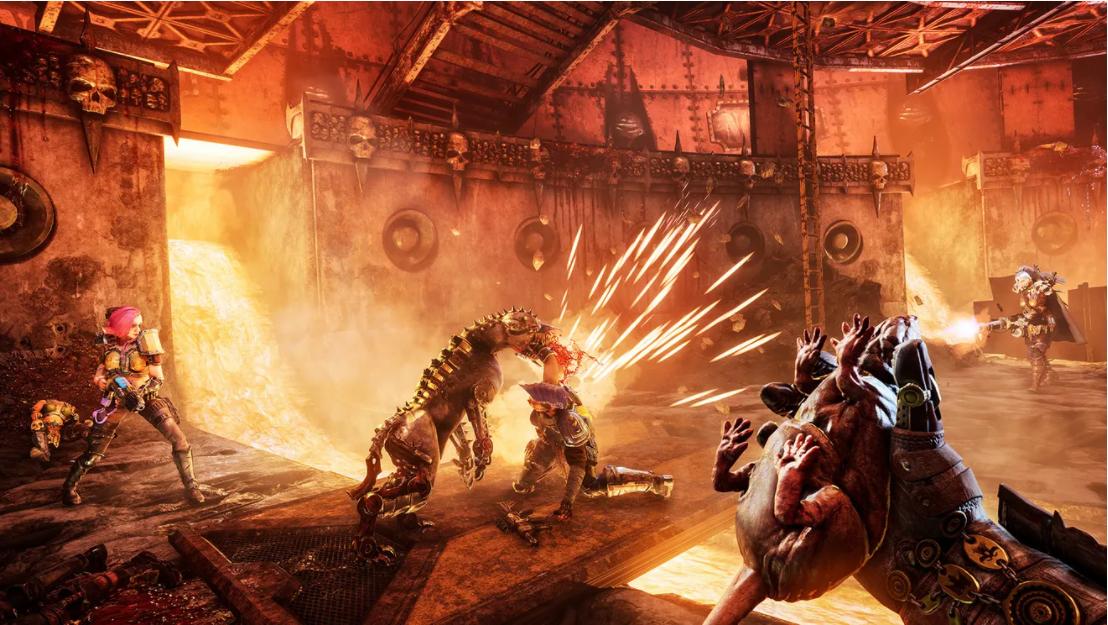
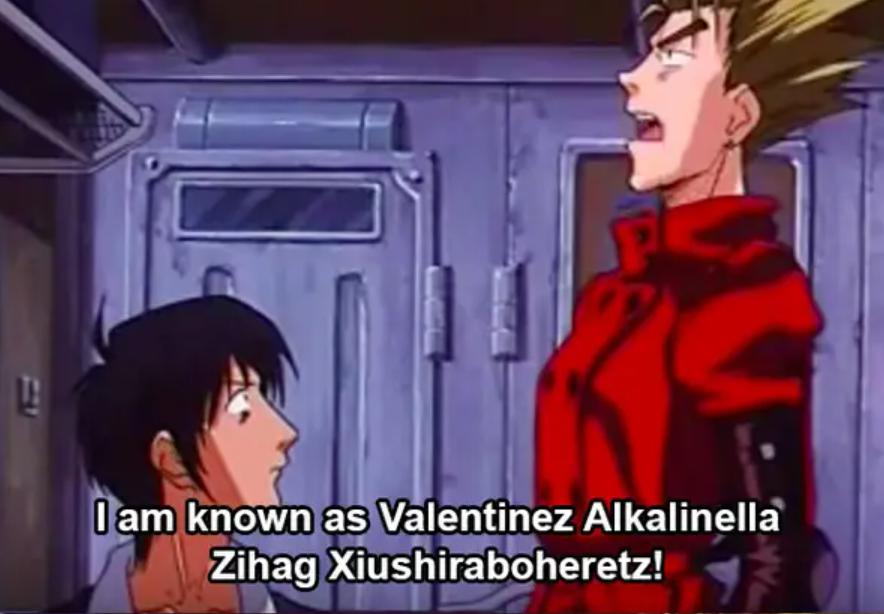
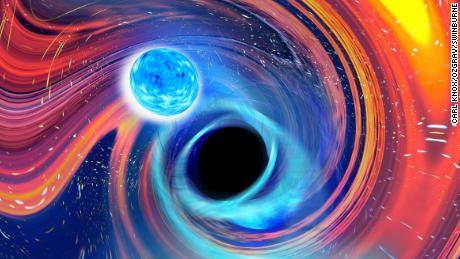


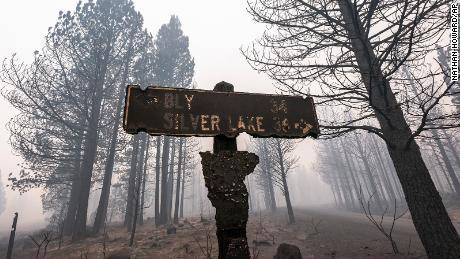
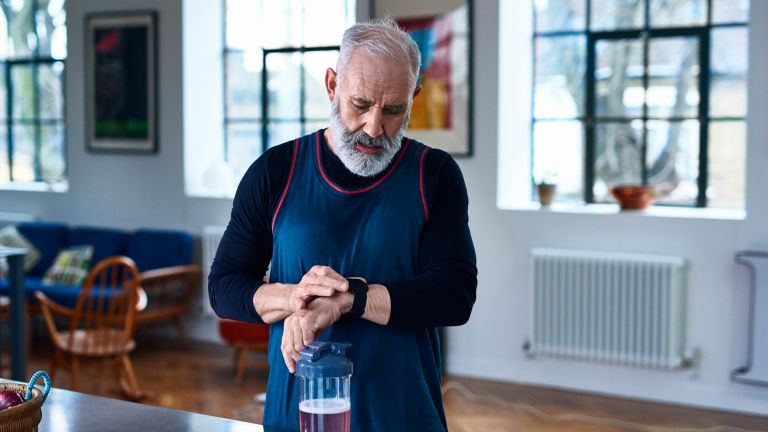


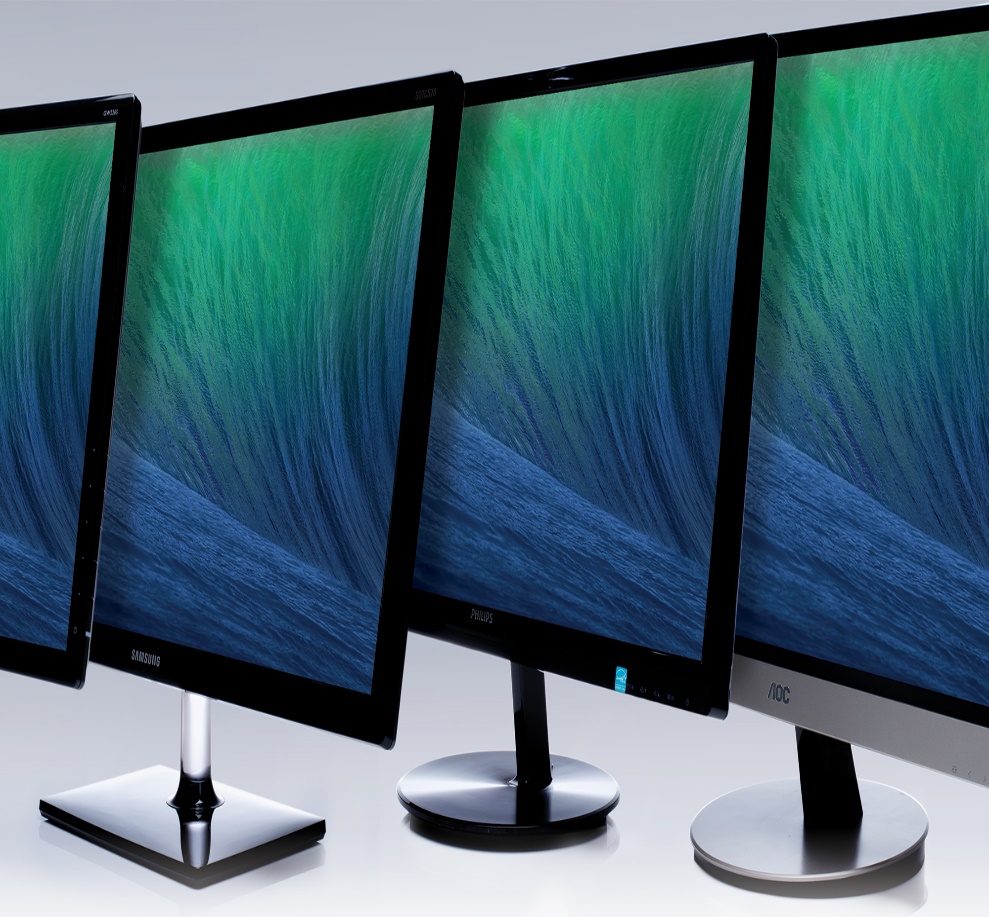
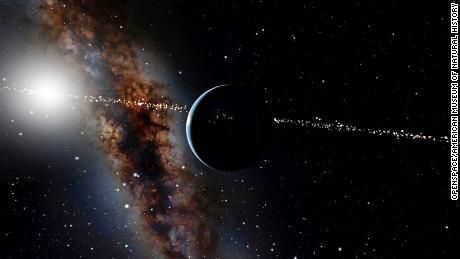
Write a Comment